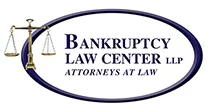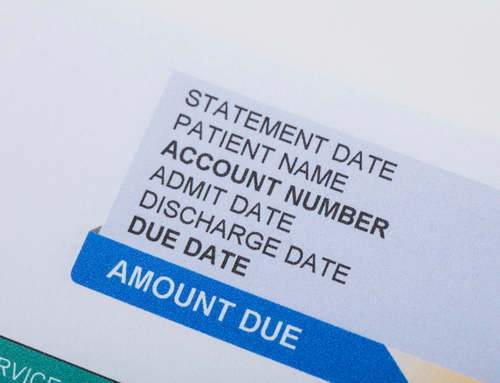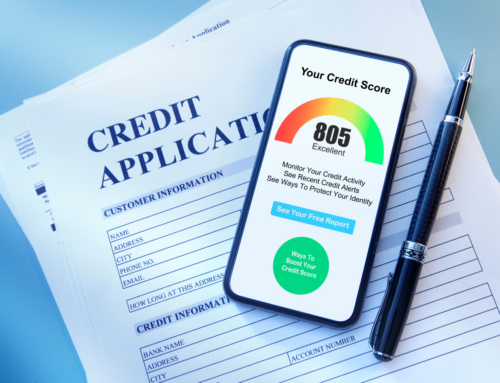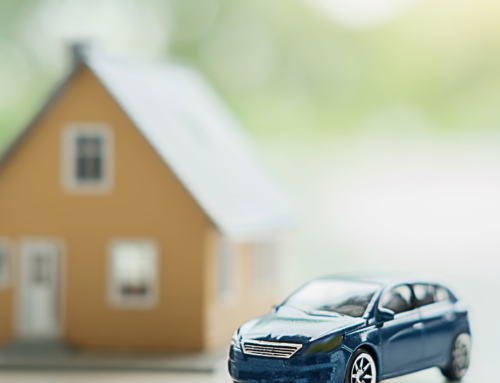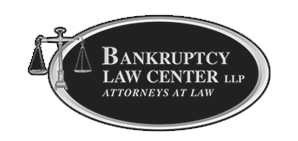Congratulations, you have successfully completed your bankruptcy and received a discharge of your debts. Other than not taking on any unnecessary debt, what should you do now in order to take advantage of your fresh start? After all, the goal is not just to get out of debt, but to thrive financially and create a better life for yourself. Here are a few steps you can take to rebuild your credit and maximize your chances of having a prosperous future:
1. Pay Your House and Car Payments On Time
If you plan to keep your home or car, continue to make your mortgage or car payments on time. The lenders will have retained their liens on the house and car, so if you want to keep them you must continue to pay for them, otherwise the lender will have a right to foreclose or repossess. And just as importantly, in order to begin rebuilding your credit, you want favorable reporting from these lenders, as house and car payments have a large impact on your credit score. Just by getting out of debt you have set yourself up to rebuild your credit within a relatively short time, and having favorable reporting from mortgage and car lenders will speed this process. Please note that if you did not reaffirm your mortgage or car loan, most likely your payments (or non-payments) will not be reported to the credit bureau. If that is the case, contact your attorney for further discussion on how to lessen the impact that non-reporting can have. If you obtained a car loan after your bankruptcy, be sure to make those payments on time, as that lender will most definitely report your payments to the credit bureaus.
2. Set Up A Payment Plan For Any Non-Dischargeable Debts
If you have non-dischargeable debts, such as student loans or income taxes, you will need to contact the respective creditor to make arrangements to pay them. As for student loans, there are various repayment plans available that you can take advantage of, especially if they are federally-backed loans. Some of these repayment plans are based on your ability to pay rather than how much is owed, and may offer loan forgiveness options. You can contact your student loan servicer for more information, or do a general Google search.
Regarding non-dischargeable income taxes, contact the IRS or WI Department of Revenue to make payment arrangements. But if you have a substantial tax debt, you may need the assistance of an attorney to work out a settlement.
Contact your attorney if you are unsure if you have any non-dischargeable debts.
3. Check Your Credit Report For Inaccuracies
We suggest checking your credit report a few months after you receive your bankruptcy discharge. (It takes a while for the credit-reporting agencies to update your report.) You can get a free copy of your credit report once a year from each of the three major bureaus at www.annualcreditreport.com. The three major credit reporting bureaus are Equifax, Transunion, and Experian.
Please note that any delinquent marks on your reports up to the time of your bankruptcy filing will remain for 7 years from the date they were reported – the bankruptcy does not make these go away. However, every debt discharged in your bankruptcy should now indicate that it has been discharged in bankruptcy, which means that these debts are no longer reporting negatively on your reports, which enables you to begin to improve your credit score. If a debt is still listed as owed, you can follow the instructions in the credit report on how to dispute the entry. We recommend making any dispute in writing, as trying to do it via email will often be ignored.
Also please note: You may receive solicitations from “credit repair” companies. Generally speaking, any sort of “quick-fix” credit repair scheme is most likely a scam. The only way to rebuild your credit is to do it systematically, over time.
4. Obtain A Credit Card
Yes, obtaining a credit card shortly after a bankruptcy can be a good idea, but only if you can trust yourself to use it responsibly. If you do not have a mortgage or car loan, then you will have little or no reporting being made to your credit file, which makes it difficult or impossible to begin rebuilding your credit. By obtaining a credit card, you will have at least one creditor reporting, and if you use the account wisely and pay it timely, then you will have consistent, favorable marks on your reports. Any credit card you are eligible for will be either be a secured card, or a card with a very low spending limit. A secured card uses money deposited in a bank account as collateral for the credit card, and is not the same thing as a prepaid credit card. Pre-paid credit cards do nothing to improve your credit – you load your own money onto a pre-paid card, rather than using credit.
When looking for a credit card, be sure to shop around, as the fees associated with credit cards can vary widely. Also, you should make sure that the credit card provider reports to all three credit reporting agencies.
In addition to making timely payments, try to use no more than 10% to 20% of your available credit, as carrying a balance close to the limit can reduce the effectiveness of the marks made to your credit file. The purpose of this card is to rebuild your credit, so responsible use is key. And one card should do – we do not recommend getting multiple cards. If you are a couple, it is fine to have a separate card for each of you. If you use the card responsibility, it will not be long until you receive offers for other cards with better rates and lower or no annual fees.
If you need a car, financing a vehicle can also help you rebuild your credit. Vehicle financing is generally more available after bankruptcy than other types of credit, although you may need to shop around for a reasonable interest rate. Be sure to only enter into a car loan that you can readily afford.
5. Pay Your Utilities On Time
Many utility companies, like WE Energies, report monthly to the credit bureaus. Paying these accounts on a timely basis will provide additional favorable reporting.
6. Save Money
Even if it is only a small amount per pay period, try to save a little for emergencies as soon as you are able. Even small amounts will add up over the long run. This will not only help should an emergency arise, but it will allow you to put down a meaningful down payment towards a vehicle loan in the future, which would help to reduce your monthly payments and qualify you for better rates.
In addition, try to contribute to a retirement plan. if you have a 401k or other retirement plan through your employer, try to contribute as much as possible (at least as much as your employer matches.) If your employer does not offer a retirement plan, you can set up your own retirement account such as an IRA. Just as with general savings, even small contributions add up over time. Whether you are contributing to an employer-based plan or your own plan, we recommend that you set up automatic deductions to the account so that you never see the money and hence are not tempted to spend it.
If you take care of these few items after your bankruptcy, you will be well on your way to rebuilding your credit and establishing a better financial future.
For further discussion on these or other bankruptcy-related matters, feel free to call the Bankruptcy Law Center LLP at (414) 257-1900. We also have offices in Racine/Kenosha, Elkhorn and Port Washington to help you rebuild your credit.
